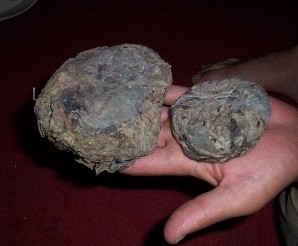The Taliban made about $100 million last year by taxing Afghan farmers involved in growing opium poppies, Antonio Maria Costa, the head of the UN Office on Drugs and Crime (UNODC) told BBC Radio. The money came from a 10% tax on farmers in Taliban-controlled areas, Costa said, adding that the Islamic insurgents profited from the illicit drug business in other ways as well.

Taliban opium revenues could decline slightly this year, Costa said, suggesting that yields and revenues are likely to decrease due to drought, infestation and a poppy ban enforced in the north and east of Afghanistan. That would lower Taliban revenues, "but not enormously," he said.
But a smaller harvest this year is unlikely to cause any shortages or put a serious dent in Taliban opium trade revenues. For the past three or four years, Afghanistan has produced more than the estimated world annual consumption, Costa noted. "Last year Afghanistan produced about 8,800 tons of opium," he said. "The world in the past few years has consumed about 4,400 tons in opium, this leaves a surplus. It is stored somewhere and not with the farmers," he added.
The Taliban have put the funds to effective use, as evidenced by the insurgency's growing strength, especially in southeast Afghanistan -- precisely the area of most intense opium cultivation. More than 230 US and NATO troops were killed in fighting in Afghanistan last year, and 109 more have been killed so far this year. US Army Major General Jeffrey Schloesser told reporters Tuesday Taliban attacks in the region were up 40% over the same period last year.
British officials interviewed by the BBC said it was incontrovertible that the Taliban was profiting off of the illegal trade created by prohibition. "The closer we look at it, the closer we see the insurgents [are] to the drugs trade," said David Belgrove, head of counter narcotics at the British embassy in Kabul. "We can say that a lot of their arms and ammunition are being funded directly by the drugs trade."
Which leaves NATO and the US stuck with that enduring Afghan dilemma: Leave the poppy trade alone and strengthen the Taliban by allowing it to raise hundreds of millions of dollars; or go after the poppies and the poppy trade and strengthen the Taliban by pushing hundreds of thousands of Afghan farmers into their beckoning arms.
This work by StoptheDrugWar.org is licensed under Creative Commons Attribution-ShareAlike 4.0 International
Add new comment